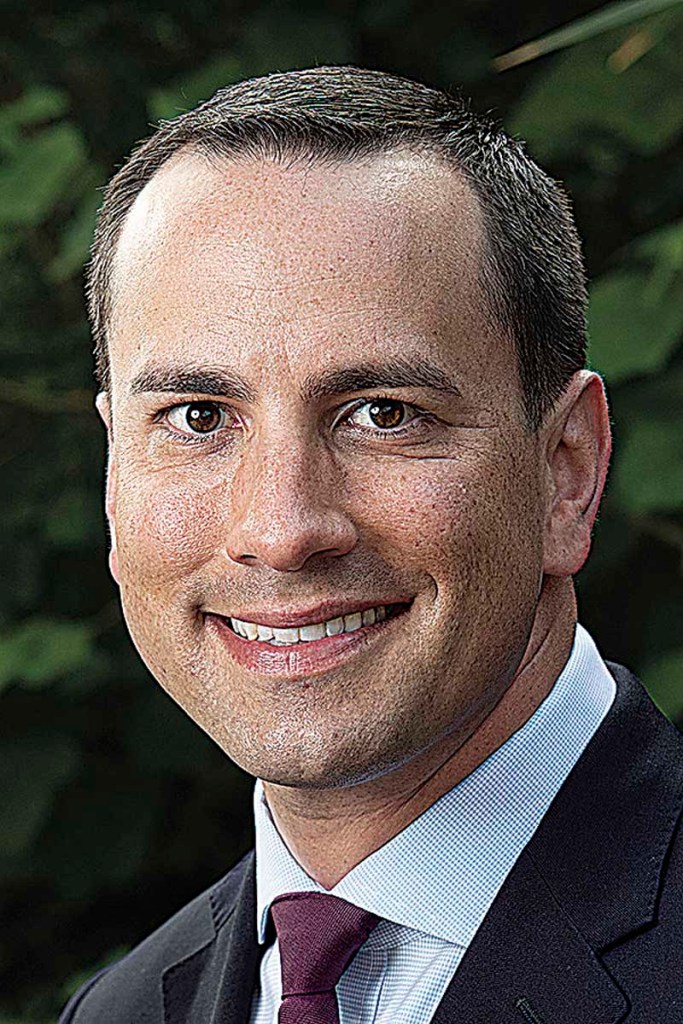COLUMN: A conservative solution to rising electricity bills
Published 1:49 pm Thursday, November 21, 2019

- Matt Moore.
Homegrown solar energy is about as conservative as it gets. It means taking an almost unlimited, God-given resource, making an investment in solar on your personal property, and earning a return month after month for your family.
Conservatives have traditionally believed in this principle of self-determination – that we, as citizens, can chart our own courses and improve our lives. This includes taking measures to reduce our power bills, which are expected to keep going up.
I grew up on the coastal plains of South Georgia and saw just how hard it is to make ends meet. Unexpected events, like natural disasters, can push families even further off financial course. Georgia families need even more ways to set their own course, specifically when it comes to energy.
Good government energy policy should empower homeowners and business owners to make wise energy choices and access market-driven solutions that make our power bills more affordable, not to mention more resilient against natural disasters like hurricanes. Local, affordable, and resilient solar power meets those needs and is widely available to our communities.
But right now, Georgia Power places an arbitrary constraint on the amount of homegrown solar you can have. Most major utilities across the country allow customers with solar to offset their energy consumption costs with the solar they generate within a month, or even longer – similar to rollover minutes on your cell phone. In practice, that means if you produce more energy than you consume one day, you are credited with that excess against any extra energy you use the next day.
In contrast, Georgia Power mandates that these flows of electrons each be treated as a separate transaction. When solar producers sell their extra electricity back to the grid, Georgia Power pays them the low wholesale rate. When those same customers need to buy electricity from the grid, Georgia Power charges them the full retail rate. And Georgia Power doesn’t even mention this unfair practice in its fine print. This not-so-minor detail costs solar owners over $300 a year in lost savings.
Why is this so important to the average family? Georgia consumers want access to solar energy. Yet when Georgia Power’s arbitrary policy is imposed, it severely limits access to solar energy for potential new customers by undercutting the economic value of solar for homeowners — to the tune of over $10,000 in lost savings over the life of a solar system. When families consider investing in their energy freedom, the lifetime payback period is typically the first number they want to know, and Georgia Power is keeping it artificially low.
Georgia law is clear. The state, like many others, requires utilities to treat home energy exports and imports the same over a monthly billing period, crediting at the same rate. In fact, customer-centric Georgia utilities ranging from Cobb EMC to Flint EMC do just that.
Solar power doesn’t just benefit families with panels on their roofs. As a South Carolina resident (a state with 18,000 solar installations, ten times more than Georgia), I’ve seen firsthand how Georgia is missing out on the good-quality, local jobs that come with a robust rooftop solar market. It’s clear that free market competition and energy choices, like solar power, are a smart choice for Southern states.
Conservatives don’t want big government; they want good government. That’s why the Georgia Public Service Commission should take the conservative approach and require Georgia Power to adopt fair, monthly accounting for Georgia families’ excess solar energy. This will foster private investment into the grid – rather than remote power plants built by monopoly utilities, often with huge costs that are socialized across all ratepayers.
Removing barriers to solar businesses and applying common sense, conservative economic principles have helped further energy independence, good jobs and more family-owned solar energy in South Carolina. The same can be true in Georgia under the conservative leadership of your elected Public Service Commission, if they so choose.
Matt Moore, a native of Tifton, served as chairman of the South Carolina Republican Party from 2013-2017, was state director for U.S. Senator Tim Scott, and worked in the office of Georgia Gov, Sonny Perdue. He currently serves as honorary chairman of the Palmetto Conservative Solar Coalition.





